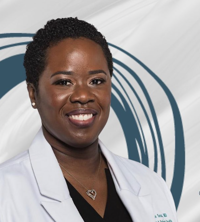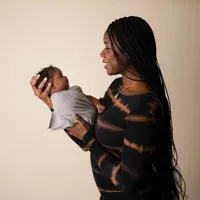A recent study conducted by researchers at the University of North Carolina at Chapel Hill shows that Black women fear not being heard and dying because of complications caused by pregnancy.
The study, led by Dr. Nicole Teal, a maternal-fetal medicine subspecialist at UC San Diego Health, reveals critical insights into the fears and preferences of pregnant Black women concerning obstetric care.
Presented at the Society for Maternal-Fetal Medicine’s annual meeting, the study involved interviews and focus groups with 32 Black women aged 27 to 34, shedding light on their experiences with obstetric care and their perspectives on having a Black obstetrician.
Teal noted that the findings are rooted in the disturbing reality of maternal health care disparities faced by Black women. Their fear of mortality during pregnancy and childbirth is well-founded, with the maternal mortality rate for Black women reported to be 2.6 times higher than that of white women in 2021, according to data from the Centers for Disease Control and Prevention.
Additionally, a 2022 report by the Pew Research Center reveals that 71% of Black women aged 18 to 49 reported having at least one negative experience with health care providers.
The study highlights the impact of racial stereotyping on pregnant Black women’s experiences, with instances of harmful comments by health care providers.
According to Black Enterprise, one woman recalled her doctor suggesting abortion with the remark, “Abortion is an option, especially if you don’t know the dad.”

OB-GYN J’Leise Sosa said Black women often seek her out because of their shared identity.
Another woman faced repeated inquiries about government assistance solely based on her race, prompting her to question, “What in my profile is making you ask these questions? Are these normal questions? Or are you asking me this because I’m Black?”
Dr. J’Leise Sosa, an OB-GYN based in Buffalo, N.Y., expressed that the study results are not surprising based on her own experiences. She emphasized the importance of addressing patients’ fears and concerns while ensuring medical safety.
Sosa shared that patients often choose her as their OB-GYN because of shared identities, stating, “‘I chose you because I trust you, because you’re an African American doctor. I am afraid of the statistics I’m hearing about pregnant people, and I want to be in a place where I feel safe and heard, and this is why I sought you out.’”
Dr. Joy Cooper, an OB-GYN and the CEO and co-founder of Culture Care, a telemedicine startup connecting Black women with Black doctors, describes patients’ reactions as “the waiting to exhale,” highlighting the relief and comfort expressed by Black women when they discover their health care provider is Black. She emphasized the tangible impact of racial concordance, with patients feeling heard and understood.

Dr. Joy Cooper, an OB-GYN and the CEO of Culture Care, highlights the palpable relief expressed by Black women when discovering their health care provider is Black, emphasizing the impact of racial concordance on patient trust and understanding.
Participants in the study consistently expressed a preference for Black obstetricians, citing feelings of comfort, safety and the belief that they would be heard. Teal underscored the need for increased diversity in the health care workforce, including physicians and midwives, as a critical step toward addressing these disparities. She said she hopes the study’s data will encourage institutions to prioritize workforce diversification, recognizing that many Black patients would prefer health care providers of the same race.
The study sheds light on the challenges faced by Black pregnant women in the health care system. It emphasizes the need for systemic changes to ensure equitable and inclusive maternal care, addressing racial disparities and fostering trust between health care providers and their patients.




